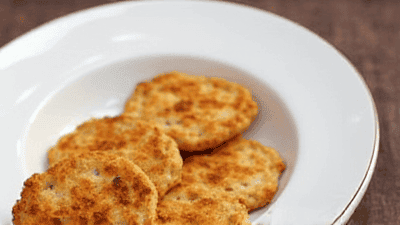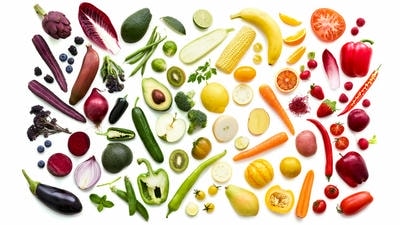Healthy Fats: Which Foods Are Your Friends
In the realm of nutrition, fats have often been misunderstood. Not all fats are created equal, and while some can contribute negatively to health, others are essential for overall well-being. Healthy fats play a crucial role in various bodily functions, from hormone production to nutrient absorption.

Understanding Fats: The Basics
Before we dive into healthy fats, it is important to understand the different types of fats and their roles in the body. Fats can be broadly categorized into three types:
Saturated Fats: Found primarily in animal products (such as meat and dairy) and certain plant oils (like coconut oil and palm oil), saturated fats can raise levels of LDL cholesterol (often referred to as 'bad' cholesterol). This is why excessive consumption should be limited.
Trans Fats: These are artificially created through hydrogenation and are commonly found in processed foods. Trans fats are known to increase bad cholesterol levels and lower good cholesterol, significantly elevating the risk of heart disease. They should be avoided whenever possible.
Unsaturated Fats: These are generally considered the 'healthy' fats and can be divided into two categories:
- Monounsaturated Fats: Found in foods like olive oil, avocados, and nuts, these fats are known for their heart health benefits.
- Polyunsaturated Fats: Includes omega-3 and omega-6 fatty acids, which are essential for various bodily functions. They are found in foods such as fatty fish, flaxseeds, walnuts, and vegetable oils.
Understanding these categories can help you make informed choices about the fats you consume.
The Benefits of Healthy Fats

Incorporating healthy fats into your diet comes with a multitude of health benefits, including:
1. Heart Health
Healthy fats, particularly monounsaturated and polyunsaturated fats, can help reduce the risk of heart disease. They promote healthy cholesterol levels by raising HDL cholesterol (the 'good' cholesterol) and lowering LDL cholesterol. Regular consumption of healthy fats can also help manage blood pressure and improve overall cardiovascular health.
2. Brain Function
The brain is predominantly composed of fat, and consuming adequate amounts of healthy fats is vital for cognitive function. Omega-3 fatty acids, found in fatty fish and flaxseeds, play an essential role in brain health and may help reduce the risk of cognitive decline as we age.
3. Nutrient Absorption
Vitamins A, D, E, and K are fat-soluble vitamins, meaning they require fat for absorption. Including healthy fats in your meals can enhance the absorption of these essential vitamins, ensuring your body receives the nutrients it needs.
4. Weight Management
Contrary to the misconception that consuming fats leads to weight gain, healthy fats can promote satiety. They help you feel full longer, reducing the likelihood of overeating and aiding in weight management.
5. Inflammation Reduction
Certain types of healthy fats, especially omega-3 fatty acids, have anti-inflammatory properties. These fats can help reduce inflammation in the body, which may alleviate symptoms of various chronic conditions.
6. Hormonal Balance
Fats play a key role in hormone production. Healthy fats can support hormonal balance, which is crucial for overall health and well-being.
Which Foods Are Your Friends?
Now that we understand the importance of healthy fats and their benefits, let’s explore the specific foods that are your friends in the quest for optimal nutrition.
1. Avocados
Avocados are loaded with monounsaturated fats, primarily oleic acid, which is beneficial for heart health. They are also rich in fiber, vitamins, and potassium. Incorporating avocados into your diet can enhance the flavor and nutritional quality of salads, sandwiches, and smoothies.
Ways to Use Avocados:
- Spread mashed avocado on whole-grain toast.
- Add avocado to salads for creaminess.
- Blend into smoothies for a rich texture.
2. Nuts and Seeds
Nuts and seeds are excellent sources of healthy fats, particularly omega-3 fatty acids, fiber, and protein. Some of the best options include:
- Walnuts: High in omega-3 fatty acids, walnuts are known for their heart health benefits.
- Chia Seeds: These tiny seeds are packed with omega-3s and fiber, making them a great addition to smoothies and puddings.
- Flaxseeds: Ground flaxseeds provide a significant dose of ALA (alpha-linolenic acid), a type of omega-3 fatty acid.
Snack Ideas:
- A handful of mixed nuts as a healthy snack.
- Chia seed pudding soaked in almond milk.
- Smoothies blended with ground flaxseeds for added nutrition.
3. Olive Oil
Olive oil is renowned for its heart-healthy properties, primarily due to its high monounsaturated fat content. Extra virgin olive oil, in particular, is rich in antioxidants and anti-inflammatory compounds, making it a superb choice for cooking and dressings.
Usage Tips:
- Use olive oil as a base for salad dressings.
- Drizzle over vegetables before roasting.
- Use it in marinades for meats and tofu.
4. Fatty Fish
Fatty fish, such as salmon, mackerel, sardines, and trout, are excellent sources of omega-3 fatty acids. Regular consumption of fatty fish is linked to numerous health benefits, including improved heart health and brain function.
Cooking Suggestions:
- Grill or bake salmon fillets with herbs and spices.
- Add canned sardines to salads or whole-grain pasta.
- Prepare a fish taco with grilled mackerel and avocado.
5. Dark Chocolate
Good news for chocolate lovers: dark chocolate (with at least 70% cocoa) contains healthy fats and antioxidants. Flavanols found in dark chocolate may help improve heart health and reduce inflammation.
Consumption Advice:
- Enjoy a small piece of dark chocolate as a dessert.
- Add cocoa powder to smoothies for a rich flavor.
- Mix dark chocolate chips into trail mix with nuts and seeds.
6. Coconut and Coconut Oil
Coconuts and coconut oil contain medium-chain triglycerides (MCTs), a type of saturated fat that might have health benefits, including aiding in weight management. While moderation is key, coconut products can be a flavorful addition to various dishes.
Coconut Uses:
- Use coconut oil for cooking at high heat.
- Add shredded coconut to smoothies or baked goods.
- Enjoy coconut milk in curries or soups.
7. Nut Butters
Natural nut butters, such as almond butter, peanut butter, and cashew butter, are great sources of healthy fats, protein, and fiber. They make a nutritious and satisfying spread for various foods.
Nut Butter Ideas:
- Spread almond butter on whole-grain toast with banana slices.
- Add peanut butter to oatmeal or smoothies for extra creaminess.
- Use cashew butter as a dip for apple slices.
8. Eggs
Eggs, especially the yolk, contain healthy fats and are a good source of protein, vitamins, and minerals. They provide choline, essential for brain health. Organic and pasture-raised eggs tend to have higher omega-3 content than conventional eggs.
Egg Preparation:
- Scramble or poach eggs for a hearty breakfast.
- Make a vegetable omelet loaded with spinach and tomatoes.
- Use hard-boiled eggs in salads or as snacks.
9. Edamame and Tofu
Soybeans and soy products, such as edamame and tofu, contain healthy fats along with protein and fiber. Incorporating these foods into your diet can provide versatility and nutrition.
Usage Ideas:
- Snack on steamed edamame with a sprinkle of sea salt.
- Stir-fry tofu with fresh vegetables for a quick meal.
- Add tofu to smoothies for a protein boost.
10. Full-Fat Dairy Products
For those who consume dairy, full-fat varieties can be nutritious options. Greek yogurt, cheeses, and whole milk contain healthy fats and provide essential nutrients, such as calcium and vitamin D. However, opt for organic or grass-fed options when possible.
Dairy Suggestions:
- Enjoy Greek yogurt with berries and nuts for breakfast.
- Use cheese in moderation in salads or on whole-grain crackers.
- Add full-fat milk to smoothies for creaminess.
How to Incorporate Healthy Fats into Your Diet

Incorporating healthy fats into your daily meals doesn't have to be complicated. Here are some practical tips to make it easier:
1. Start Your Day Right
- Breakfast: Begin your day with a wholesome breakfast that includes healthy fats. Consider oatmeal topped with nut butter or seeds, smoothies with avocado, or eggs with vegetables.
2. Snack Wisely
- Healthy Snacks: Choose snacks that include healthy fats, like a handful of nuts, Greek yogurt, or hummus with vegetables. This will help maintain energy levels throughout the day.
3. Embrace Cooking with Healthy Fats
- Cooking Methods: Use olive oil or coconut oil for sautéing vegetables and grilling proteins. Opt for roasting and baking methods to preserve healthy fats in your dishes.
4. Balance Your Plate
- Portion Control: While healthy fats are beneficial, they are still calorie-dense, so practice portion control. Aim to fill half your plate with vegetables, a quarter with lean proteins, and a quarter with whole grains and healthy fats.
5. Experiment with Recipes
- Meal Inspiration: Try new recipes that feature healthy fats. Explore salad dressings made with avocado or tahini, or incorporate nuts and seeds into your baked goods.
Common Misconceptions About Fats
Despite the benefits of healthy fats, misconceptions persist. Here are some common myths debunked:
Myth 1: All Fats Are Bad
Not all fats are harmful; in fact, healthy fats are essential for optimal health. Focus on incorporating healthy fats while limiting unhealthy options.
Myth 2: Consuming Fat Makes You Fat
Weight gain is primarily influenced by overall caloric intake rather than the fat content alone. Healthy fats can promote satiety and actually help with weight management when consumed in moderation.
Myth 3: Low-Fat Products Are Always Healthier
Low-fat products often contain added sugars or other fillers to compensate for the reduced fat content. It is better to choose whole, nutrient-dense foods over processed low-fat alternatives.
Myth 4: You Don’t Need Fats in a Healthy Diet
Fats are crucial for various bodily functions, including hormone production and nutrient absorption. Healthy fats should be a regular part of a balanced diet.
Conclusion

Healthy fats are your friends in the pursuit of optimal nutrition. By understanding the different types of fats and their benefits, you can make informed choices that support your health. Incorporating foods rich in monounsaturated and polyunsaturated fats, such as avocados, nuts, seeds, olive oil, and fatty fish, can help you achieve a well-balanced diet.
As you explore various healthy fat sources, remember that moderation is key. Making small changes to your diet can lead to significant improvements in your overall well-being. Embrace the power of healthy fats, and you’ll be on your way to nourishing your body while enjoying delicious foods.





